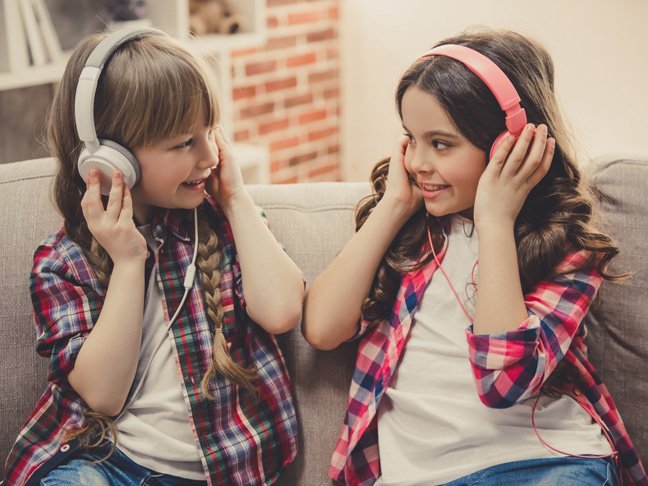I grew up side-by-side with a best friend. We spent most of our afternoons wandering the wooded area in between our homes, making up games, and enjoying fits of laughter over little things. We weren’t always placed in the same classroom, but we always found each other the moment the recess bell sounded.
As we got older, long days in the woods shifted to walking to the video store to rent the same movie over and over again. It never got old. And though we went to different high schools, we always had each other. In fact, four decades later, the words “my best friend” still roll off my tongue without a second thought when I talk about her.
She’s my first phone call for good news and bad, and she’s the person I turn to if I need either a reality check or a cheerleader. She’s my anchor in this world.
My 10-year-old daughter also has a best friend. They met on the first day of kindergarten and became fast friends. And are the perfect amount of same and different and balance each other out. They cheer each other on, drop handmade notes to each other when one needs cheering up, and hug each other with a ferocity that can’t quite be described each time they meet up. Though they no longer attend the same school, their friendship remains unchanged. They are each other’s anchors in this fast-past constantly changing world, and I couldn’t be happier for them.
Anyone who has ever experienced a close childhood friendship surely knows that the person you shared your dreams, worries, and inside jokes with played an important role in your emotional wellbeing, and studies back this up. In fact, research shows that having a best friend during childhood can help strengthen kids’ resilience and build adaptive coping skills. One very strong friendship during childhood can actually set kids up for a lifetime of resilience and coping with stressors.
There are many benefits of best friendships, including both protective factors and strengthening of prosocial skills:
1. Close friendships teach kids how to be good friends to others. When a child has a trustworthy sounding board, she can practice learning to be a good friend. It’s natural for kids to argue at times, and it’s important for kids to learn to listen to one another and respect another person’s point of view. A close friendship provides a safe space to practice friendship skills.
2. They protect against bullying and exclusion. Most kids will encounter some form of bullying at some point, whether they are on the receiving end of it or they see it happening. But, when kids have a close friend they have someone who stands by their side when others are teasing them. They also have someone to play with at recess, sit with at lunch, or walk to and from school with, which adds an extra layer of security. When kids know they have a friend to count on, they feel less anxious.
3. Best friendships build resilience. When kids have someone they can confide in and ride the ups and downs of childhood with, they are better able to cope with and bounce back from adversity. They learn to problem solve and work through things together. They also learn to ask for help. This helps them not only in the moment, but into adulthood as well.
4. Best friendships buffer kids against stress. Kids encounter stress and deal with worries for all kinds of reasons. That’s part of growing up. What’s difficult is sharing those stressors and worries with other kids. Many kids struggle to verbalize their innermost feelings with others, and choose to keep their emotions to themselves, instead. Best friendships afford kids the opportunity to work through their worries and stress with a friend who can understand. Developing a deeper friendship with another child means moving on from common ground and shared likes to talking about emotions, dreams, and fears. This can be very powerful for little kids.
5. These kind of close friendships promote kindness. Kids who have best friends learn to empathize with others and have compassion for friends because they build a meaningful friendship that goes beyond surface level social skills. Empathy and compassion are the very roots of kindness, and kids who learn the importance of these skills tend to be friendly and kind to others.
Best friendships help kids understand the true meaning of being a friend. They work through the ups and downs of childhood together, and have a ton of fun along the way.
Photo: Getty








